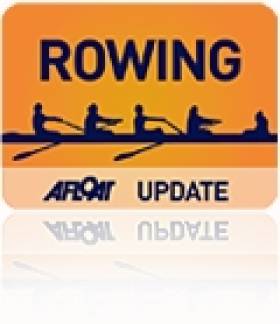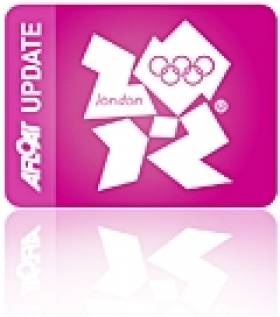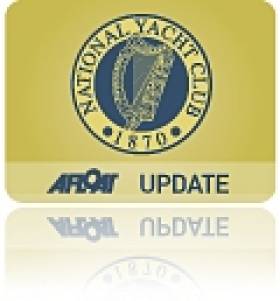Displaying items by tag: Ryan
Ryan Best of Irish K1 Competitors at Canoe Slalom World Championships
#Canoeing: Cade Ryan was the most impressive of Ireland’s three competitors in the K1 at the canoe slalom World Championships in Lee Valley in England today. Ryan clocked 90.42 seconds and 89.69 in the two runs, with no penalties on either. Elliott Davidson and Sam Curtis were pushed well down the rankings, through penalties on both runs.
Canoe Slalom World Championships, Lee Valley, London, Day Three (Irish interest)
Men
K1 – First Run (top 30 to Semi-Finals): 60 C Ryan 90.42; 98 S Curtis 145.17 (incl 54 seconds penalty); 102 E Davidson 203.59 (incl 104 sec pen). Second Run (10 qualify): 27 Ryan 89.69; 41 Davidson 99.06 (incl 6 sec pen); 65 Curtis 146.05 (incl 56 sec pen).
Fine Start by Ireland at European Rowing Championships
# ROWING: Ireland had a good start at the European Rowing Championships in Seville today. Claire Lambe nailed the second place she needed to qualify directly for the A Final of the lightweight single sculls and Sanita Puspure qualified for her semi-final of the single sculls by taking the third of three qualification places.
Ireland’s two other crews face into repechages later today. Niall Kenny and Justin Ryan took third in a heat of the lightweight double sculls won by Italy, who took the one semi-final place on offer, repelling a challenge by Austria. Ireland won a mini-battle with Bulgaria for third.
John Keohane finished fifth in his heat of the single sculls. Germany’s Marcel Hacker had his expected win, with Mindaugas Griskonis of Lithuania taking the second qualification place. Keohane, who is new to this level, held off Russian Denis Kleshnev, who finished sixth.
European Rowing Championships, Seville – Day One (Irish interest)
Men
Lightweight Double Sculls – Heat Four (One Directly to A/B Semi-Finals; rest to Repechages): 1 Italy (A Micheletti, P Ruta) 6:39.92; 2 Austria 6:44.49, 3 Ireland (N Kenny, J Ryan) 6:47.43, 4 Bulgaria 6:48.89, 5 Czech Republic 6:51.76.
Single Sculls – Heat One (First Two Directly to A/B Semi-Finals; rest to Repechages): 1 Germany (M Hacker) 7:03.91, 2 Lithuania (M Griskonis) 7:08.15; 3 Italy 7:19.44, 4 Greece 7:22.19, 5 Ireland (J Keohane) 7:25.67, 6 Russia 7:27.89.
Women
Single Sculls – Heat One (First Three to A/B Semi-Finals; rest to Repechage): 1 Ukraine (N Dovgodko) 8:04.02, 2 Norway (T Gjoertz) 8:04.65, 3 Ireland (S Puspure) 8:09.24; 4 Bulgaria 8:18.54, 5 Armenia 9:41.08.
Lightweight Single Sculls – Heat One (First Two Directly to A/B Semi-Finals; rest to Repechage): 1 Austria (M Tauper-Traer) 7:25.35, 2 Ireland (C Lambe) 7:58.09; 3 Czech Republic 8:06.09, 4 France 8:09.57, 6 Cyprus 8:10.61.
Offshore Sailors Consider 'Virtual Marks' for 2012 Fixtures
Taking a lead from this year's Lyver offshore sailing race, when Liverpool Yacht Club used a "virtual" waypoint as a mark on the course, ISORA may include this type of mark in future races, that's according to Commodore Peter Ryan. His comments come in a plea to members for feedback before the 2012 ISORA calendar is set at the ISORA agm on November 19th. Virtual marks would be a means to ensure that the offshore fleet get true upwind legs and still have reasonable length races.
It would, says Ryan of Dun Laoghaire's National Yacht Club, also facilitate the shortening of the day races. 'We have been around Rockabill so often over the last few years that the bird life there think we are residents!' he adds.
McGovern and Seaton Racing Hard in the 49er Dinghy
National YC Recruits New Club Manager
In a message to members this week Commodore Peter Ryan said Conneely 'has been a huge part of the Club for 21 years and it will be a difficult task to find a replacement of his quality and commitment'.
The newspaper advertisement says the successful candidate 'will have a strong hands on approach to managing a tight knit, highly motivated team of professionals'.
Applicants are requested to email [email protected] before March 1st.
































































